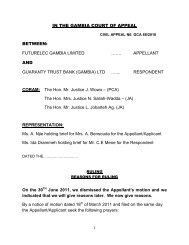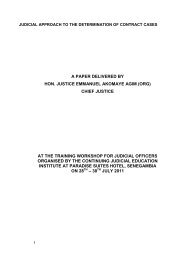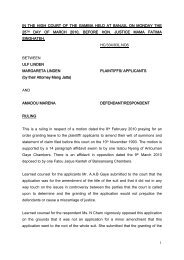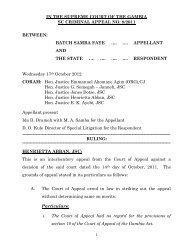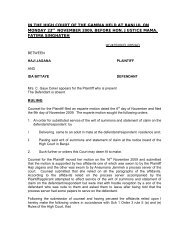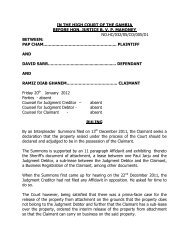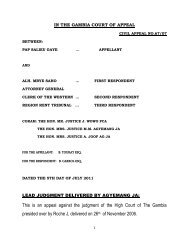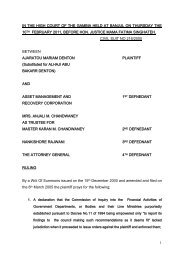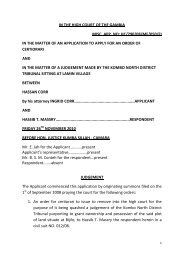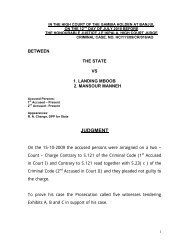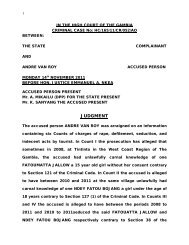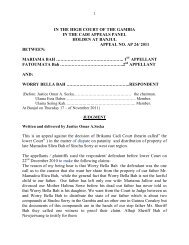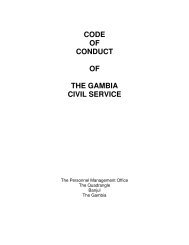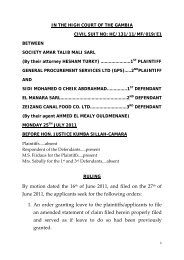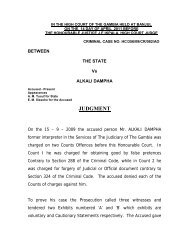IN THE GAMBIA COURT OF APPEAL
IN THE GAMBIA COURT OF APPEAL
IN THE GAMBIA COURT OF APPEAL
Create successful ePaper yourself
Turn your PDF publications into a flip-book with our unique Google optimized e-Paper software.
appellant. There is no doubt that if the respondent had exhibited all these<br />
documents with his affidavit, his claim would have been beyond dispute. It did<br />
not and the appellant filed a notice of intention to defend disputing the amount<br />
covered by the policy and the occurrence of the insured peril. The appellant<br />
denied taking over the insured vehicle, declaring it a write off or having<br />
possession of it. The appellant also denied receiving the requested documents<br />
from the respondent. These disputations rendered the production of the above<br />
documents necessary to enable the Court decide the indemnity stipulated in the<br />
policy, the occurrence of the insured peril and if such occurrence did not result<br />
from a breach by the respondent of a term of the policy and the submission of<br />
the requested documents to the appellant. With these issues remaining<br />
unsettled I do not see how judgment can justifiably be entered for the plaintiff<br />
on the undefended list…………….The question here is, why the respondent did<br />
not exhibit such an important document upon which his case is founded? Why<br />
keep the document away and rather be leading secondary evidence of its<br />
contents? Which is better, to produce the document or to testify as to its<br />
contents? If the document is produced, it will speak for itself particularly on the<br />
matter of the agreed indemnity. Furthermore by virtue of S.79 of the Evidence<br />
Act 1994 it is doubtful if affidavit evidence of the contents of the insurance policy<br />
is admissible. The section provides that all facts except the contents of<br />
documents may be proved by oral evidence. Clearly affidavit evidence is akin to<br />
oral evidence in all respects. S.138 (1) of the said Evidence Act put the matter<br />
beyond doubt. It provides interalia that when any contract has been reduced to<br />
the form of a document no evidence may be given of such contract except the<br />
document itself is produced or secondary evidence of its contents in cases in<br />
which secondary evidence is admissible under the Evidence Act.<br />
Since the 2 agreements pleaded by the Appellants and relied on by the parties<br />
herein, as regulating the transactions relating to the Appellant hotel, are not in<br />
evidence before this court, and in the face of the pleadings and evidence led at<br />
51



